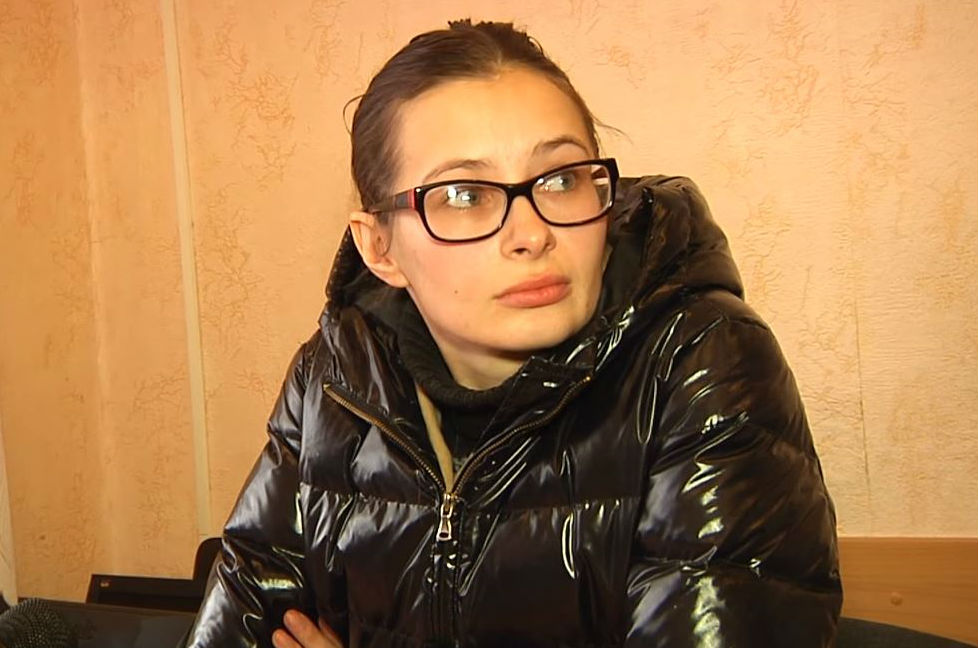 Eleven months after Russian President Vladimir Putin’s agreement in Minsk that all prisoners must be released, Kremlin-backed militants are continuing to hold a number of prisoners, including many civilians, like 31-year-old Luhansk journalist Maria Varfolomeyeva.
Eleven months after Russian President Vladimir Putin’s agreement in Minsk that all prisoners must be released, Kremlin-backed militants are continuing to hold a number of prisoners, including many civilians, like 31-year-old Luhansk journalist Maria Varfolomeyeva.
Varfolomeyeva worked for the local news website Svobodny Reporter and has worked as a fixer for various national media, including Hromadske TV. She took an active role in the Euromaidan and was in danger in Luhansk but could not leave her ailing grandmother. The elderly lady died a few days after her granddaughter was taken prisoner on January 9, 2015.
Although the Minsk Agreement states that hostages and illegally detained persons must be released on an “all for all” basis, neither the Kremlin nor the Donbas militants are showing any signs of observing these commitments. At a December 17 press conference, Putin was asked whether he would exchange two Russian military intelligence officers on trial in Ukraine for Nadiya Savchenko, Oleg Sentsov, Oleksandr Kolchenko, and other Ukrainians held in Russia. He answered that an exchange must be of equal weight and claimed that Ukraine was breaking the Minsk Agreement by bringing charges against the officers. Never mind that the officers were apprehended after they took part in an attack on Ukrainian soldiers that killed one soldier and injured others.
Putin’s response makes no sense. A large number of Russia’s Ukrainian hostages have already been declared political prisoners by the Russian human rights organization Memorial, and Western countries have demanded their release. No one has made similar demands for the Russian intelligence officers.
Although the “all for all” principle must be observed, there is no parity in the number of hostages held by Russia’s proxies in the so-called Donetsk and Luhansk People’s Republics. According to Ukraine’s Security Service (SBU), Russia and its proxies hold 151 Ukrainian hostages.
The order of events here is critical. Minsk has been extended into 2016, and in theory the release of all prisoners is required five days after the full withdrawal of weapons. Ukraine is nonetheless under pressure to agree to elections to be held in the militant-controlled areas, with the demand being that a general amnesty law be passed before elections.
However, the level of rights abuses confirmed in the last UNHCR monitoring report and the heavy restrictions on freedom of speech and electoral rights would render the results of these elections highly questionable.
There is a considerable amount of evidence of serious human rights abuses committed by Kremlin-funded and armed militants, including Russian mercenaries and soldiers. A recent survey found that over 87 percent of Ukrainian soldiers and 50 percent of civilians held prisoner by the militants had been subjected to torture. In over 40 percent of the cases, Russian mercenaries or people who identified themselves as Russian military personnel reportedly played key roles in the torture.
Unreasonable demands are perfect for Russia. It can claim that Ukraine is breaking its commitments and step up pressure to get the sanctions waived without actually implementing Minsk.
Plus, the large number of soldiers and civilians still held hostage in Russia and Crimea gives Russia and its proxies a useful lever. The requirements posed for the exchange of specific hostages are in breach of the Minsk accords. They also serve as a delay tactic, with the militants often suddenly changing their demands.
Varfolomeyeva is one of the hostages who has been held hostage for more than a year. According to Konstantin Reutsky, an activist originally from Luhansk, the militants demanded the release of a person convicted of crimes unrelated to the conflict in exchange for Varfolomeyeva. The Ukrainian authorities agreed, but then the militants backed out.
The militants have made allegations against Varfolomeyeva similar to those which Russia is using against Savchenko. Although captured when there had been no shelling in Luhansk for several months, they claimed that she was taking photos of buildings where militants were staying to share with the Ukrainian military.
The initial RIA Novosti report on Varfolomeyeva’s imprisonment claimed that she would face up to fifteen years in jail. LNR Minister of State Security Leonid Pasechnyk said that Varfolomeyeva’s “guilt has been fully proven” and offered a photograph of the journalist holding a Right Sector business card which they found on her social network account as the smoking gun.
Both the militants and the pro-Kremlin Life News TV channel view her as something of a trophy. In February, she was heard on video being tormented by militants and in May Life News produced a carefully doctored interview. Varfolomeyeva’s obvious distress during the interview and difficulty speaking made it easy for Life News to add their version of the journalist’s supposed change of heart.
LifeNews asserted that that she has had time to “change her attitude to the Ukrainian nationalist battalions,” although Varfolomeyeva never said so. At the end of the recording, Varfolomeyeva begs her government to bring about her release or exchange. It is clear that she denies any of the allegations made against her.
Reporters Without Borders and Ukrainian journalist organizations have appealed, but their appeals have been directed to Ukraine, since there is no sense in addressing the militants directly.
Russia must comply with the Minsk Agreements in order for sanctions to be removed. The West could and should pressure the Kremlin to free the prisoners it is holding and tell its proxies in the Donbas to do the same.
Halya Coynash is a member of the Kharkiv Human Rights Protection Group.
Image: Kremlin-backed militants have held 31-year-old Luhansk journalist Maria Varfolomeyeva since January 9, 2015. Varfolomeyeva appears in a video produced by the Luhansk People’s Republic. Credit: Courtesy screenshot МВД ЛНР
